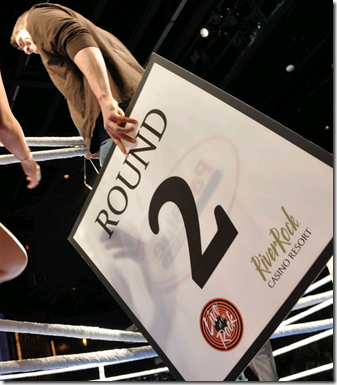
Lawyers on both sides confirmed to Legally India that notice had been issued and fixed to be served within 10 weeks on all respondents.
It is understood that the bench of two, presided over by Justice RM Lodha, decided that in the meantime foreign law firms would continue to be prohibited from opening up offices in India, though the full order was not available at the time of going to press.
Senior counsel Abhishek Manu Singhvi and Dua Associates reprised their role in representing foreign law firms, as they had in the earlier Madras high court hearings. It is understood that at the time of going to press Covington Burling and White & Case have formally instructed Dua and Singhvi to continue acting.
Senior advocate MN Krishnamani appeared for the BCI. He said that he had argued on behalf of the BCI that foreign lawyers should not be allowed to practise foreign or domestic law, even on a temporary “fly-in-fly-out” basis, unless they were regulated by the BCI.
“Suppose an Indian friend is cheated by a foreign law firm, would not the bar council have jurisdiction? They may be advising on foreign law but even that is also law practice – even that should not be done,” he said.
He added that the BCI also questioned why the Madras court had ruled on legal process outsourcing (LPO) firms, categorising them as business process outsourcing (BPO) firms, which only did word processing and document work. Foreign law firms might start up a law firm in India “camouflaging” as a BPO, said Krishnamani.
Today’s special leave petition SLP(C)No. 17150-17154/2012 was heard before Justice RM Lodha and Justice Anil R Dave.
Justice Lodha, originally from Rajasthan, was called to the Supreme Court bench in 2008 from the Patna high court where he was Chief Justice. Dave joined the apex court in 2010 after having been Chief Justice of the High Court of Bombay.
A total of 31 law firms are impleaded in the case: Akin Gump Strauss Hauer & Feld; Allen & Overy; Arnold & Porter; Ashurst; Bird and Bird; Clayton Utz; Clifford Chance; Clyde & Co; Covington & Burling; Davis Polk & Wardwell; DeHeng Law Office; Eversheds; Freehills; Freshfields Bruckhaus Deringer; Herbert Smith; Hogan & Hartson; Kelley Drye & Warren; Kennedys; Linklaters; Loyens & Loeff; Mayer Brown; Norton Rose; Paul, Weiss, Rifkin, Wharton & Garrison; Perkins Coie; Pillsbury Winthrop Shaw Pittman; Rouse; Shearman & Sterling; Slaughter and May; White & Case; Wilmer Hale; Wilson Sonsini Goodrich & Rosati.
The LPO Integreon is also named.
Last week Allen & Overy released a survey it commissioned hat showed that more than 9 out of 10 corporate lawyers were in favour of liberalisation, while only one in 10 wanted full reciprocity.
In August 2011 the BCI had filed an affidavit in Madras arguing that the 2009 Lawyers Collective case had settled the law by prohibiting the practice of foreign firms.
The BCI appealed against the Madras judgment in April.
Update 1: The order has now been uploaded on the Supreme Court website:
“It is clarified that Reserve Bank of India shall not grant any permission to foreign law firms to open liaison offices in India under Section 29 of the Foreign Exchange Regulation Act, 1973. It is also clarified that the expression ‘to practice the profession of law’ under Section 29 of the Advocates Act, 1961 covers the persons practising litigious matters as well as non-litigious matters other than contemplated in para 63 (ii) of the impugned order and, therefore, to practice in non-litigious matters in India, the foreign law firms, by whatever name called or described, shall be bound to follow the provisions contained in the Advocates Act, 1961.”
The Times of India reported:
BCI chairman Manan Kumar Mishra told TOI that they had been continuously protesting against the HRD ministry's Higher Education and Research Bill, 2011, which purportedly permitted entry of foreign lawyers into India. He said BCI has called a protest by lawyers across India on July 11 and 12 to agitate against the HER Bill, which was “clandestinely trying to sideline and harm the advocates of the country and their elected statutory bodies in the matter of legal education and legal profession”.
Hat tip to @spread_law and @sshuks for first tweeting the news.
Photo by Fabrizio Sciami
threads most popular
thread most upvoted
comment newest
first oldest
first
Comment of the month!
www.lawctopus.com/poll/poll-do-you-support-entry-of-foreign-law-firms-into-india/
BCI is a shameless object; retarding progress.
The only way this will happen is if some genuine decision maker cares a damn about the issue. Most of them do not so most of us will retire before this happens.
:o)
An absolute low point, serious... what are we talking about... terrorists? ISI agents? Nuclear scientists? No! Foreign lawyers! An absolute danger for society, I agree, with their laptops and comments all the time, ban them!
Thanks BCI! You saved the country against these dangerous aliens :o)
I am not entirely sure that their reading of what happened in court yesterday is correct, but am still trying to figure this out.
This is the operative part of the order:
Quote:Does this change anything vis-a-vis the Madras HC order? The Madras HC never said that litigation practice was excluded, nor that foreign law firms were allowed to open offices here. In fact, the SC has explicitly carved out fly-in-fly-out, citing part 63(ii) of the Madras HC order, which states:
Quote:So really, it seems to be that the Supreme Court has just reaffirmed the current judgment in the Madras HC, and nothing else, which some of the national papers seem to have over-reported.
The RBI was already prohibited from allowing foreign law firm offices under the Lawyers Collective judgment, as far as I understand and the BCI has primarily complained that some LPOs may be acting as foreign law firms.
Would love to hear your views.
www.legallyindia.com/201207052935/Law-firms/msm-reports-of-blow-to-foreign-law-firms-greatly-exaggerated-sc-affirms-fly-in-fly-out-cites-repealed-fera-nothing-changed
threads most popular
thread most upvoted
comment newest
first oldest
first